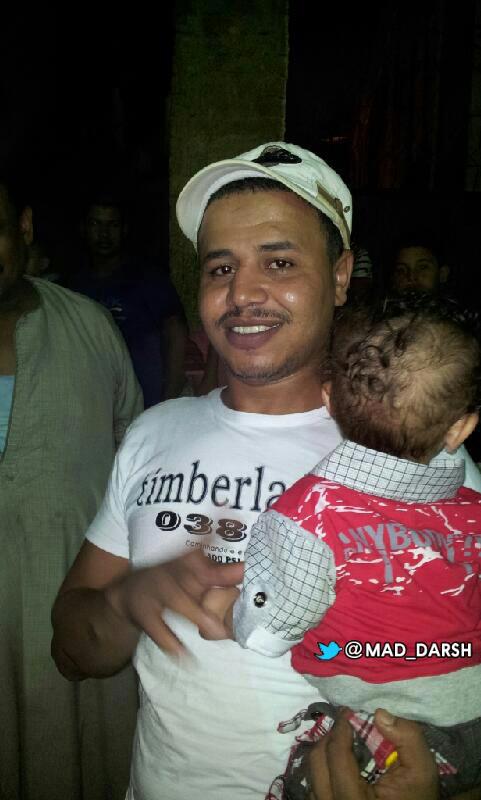CAIRO: Egyptian civil society has developed new awareness over the last couple of years that has helped change the stereotypes surrounding orphans.
While most of us have a vague idea of how an orphan spends his day, The Daily Star Egypt delved into the details.
Surprisingly, children at Dar Al-Orman, the Orman Orphanages, attend the normal schooling system; they go to a school nearby where few people in the administration know that they are orphans.
Sahar El-Sherbeeny, director of Dar Al-Orman for orphans, emphasizes that they try to make their kids understand the concept that this is “a home, avoiding the word shelter.
“We are trying to stop the expression of ‘dar’ or shelter, says El-Sherbeeny, explaining that when they are young their classmates do not understand the word “dar, although later on it could become an issue. Because of this, the children need to stop using this word and substitute it with the word “home.
“We try to eliminate any terms that would let their schoolmates think they are different from them, El-Sherbeeny adds.
Unfortunately, as time goes by, simple answers are no longer satisfactory. According to El-Sherbeeny, usually around the age of nine an orphan starts to wonder and ask questions such as, “Why do I have many mothers and no dad? and “Why does my colleague’s mum pick him up after school.
Orphans over the age of two usually stay at Dar Al-Orman because they are regarded as past the adoption age. “They mingle with their friends at school, therefore we don’t lie to them about the truth, says El-Sherbeeny. “I mean sooner or later, he/she will know about it.
“We try to simplify matters to them and tell the truth gradually, explains El-Sherbeeny. “We tell them things like mum went to God; by the time they are in their teenage years they would gradually understand the truth as it is.
In order to prevent such situations, Dar Al-Orman encourages Islamic adoption, starting from the age of six months until the age of two. Islamic adoption or kafalet el-yateem, is when a child is told that he is adopted and takes the father’s fourth name, the father’s grandfather’s name and is not allowed to inherit any wealth.
El-Sherbeeny adds that, according to the Al-Azhar grand mufti, as the child grows older and discovers that the parents’ name on his birth certificate is different from the name of his adopting parents, the parents can tell him that he is their distant relative and they are raising him because his parents died in an accident.
“They can tell him his parents died in a train accident or in a ferry accident or even a car accident, says El-Sherbeeny, “and it won’t be lying because it is not his fault that he found himself without parents. He deserves a decent life just like you and me.
So far, out of the 1,800 children at Dar Al-Orman, they have succeeded in finding families for 1,600 children. Adoption procedures are carried out under the supervision of the Ministry of Social Affairs, in which they send someone to check that the family fulfils certain criteria. “These procedures may take around two months, says El-Sherbeeny.
Boys and girls who stay in Dar Al-Orman receive separate rooms at the age of nine. They think that they are all brothers and sisters and care about each other. El-Sherbeeny says that with her permission, orphans can have their schoolmates come over and they can go to their houses as well. “Some parents refuse to let their child be friends with an orphan, but the majority welcome and encourage the idea, says El-Sherbeeny.
Although none of Dar Al-Orman’s orphans have reached the age of 17, El-Sherbeeny says that they will be with them all the way. “Financially they have more than enough to continue their secondary and university education, explains El-Sherbeeny, “but everyone chooses according to his abilities and interests.
Dar Al-Orman offers their orphans summer activities and sports through clubs and youth centers. El-Sherbeeny adds that the celebration of Orphan’s Day has been like a spark that hit Egyptian society. Now many people volunteer to teach them secondary skills, such as art and sculpturing.
Dar Al-Orman, an organization that has made LE 120 million over the last eight years, is currently studying a project to set up a savings account for the orphans in cooperation with the Bank of Housing and Development, so that by the time an orphan reaches the age of 18, they will have some money set aside.
For those of you, who would like to spend time with the orphans or donate money, please call Dar Al-Orman hotline at 19455. Visit the Web site at www.Dar-alorman.com. Address: 11 Dr. Al Mahrouky St. off Batal Ahmed Abdel-Aziz St. Mohanessin Cairo, Egypt.


